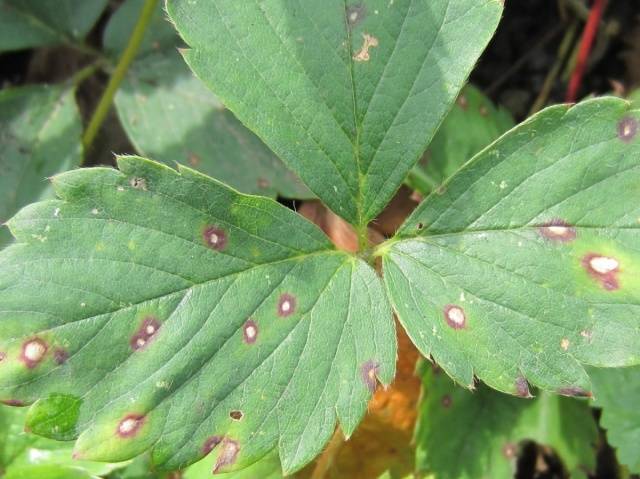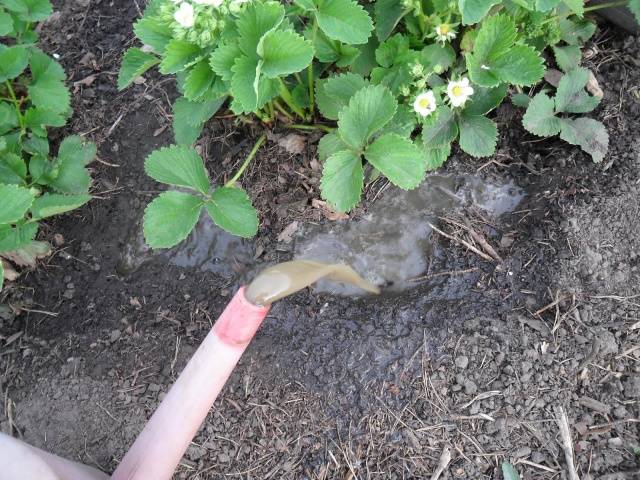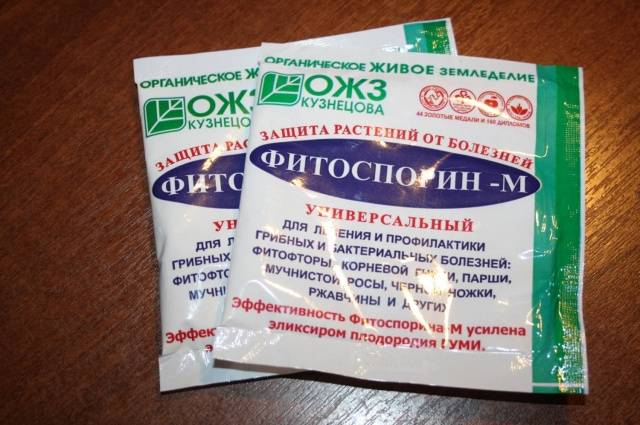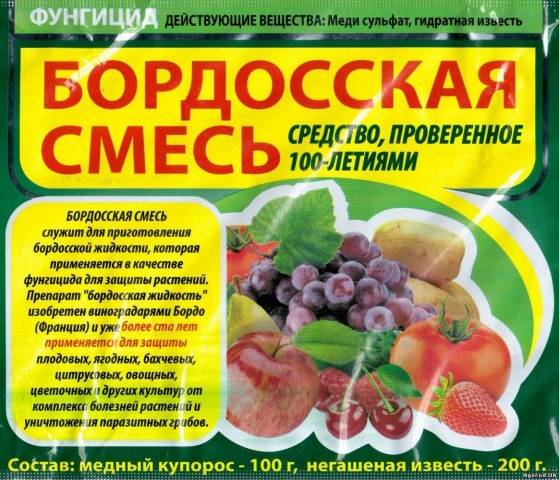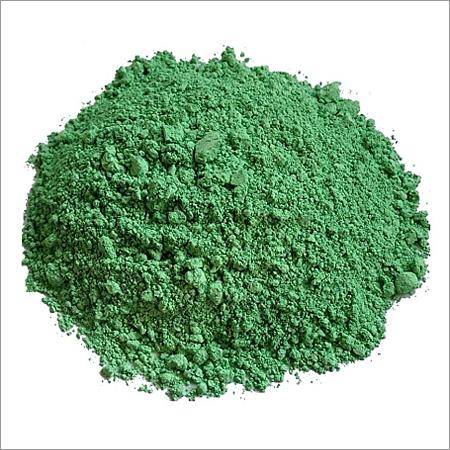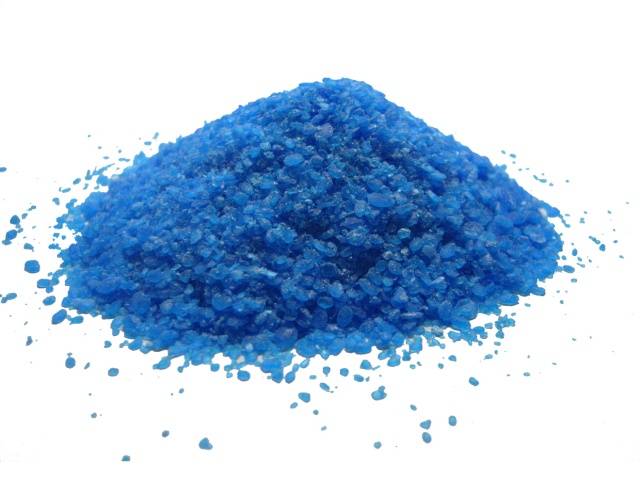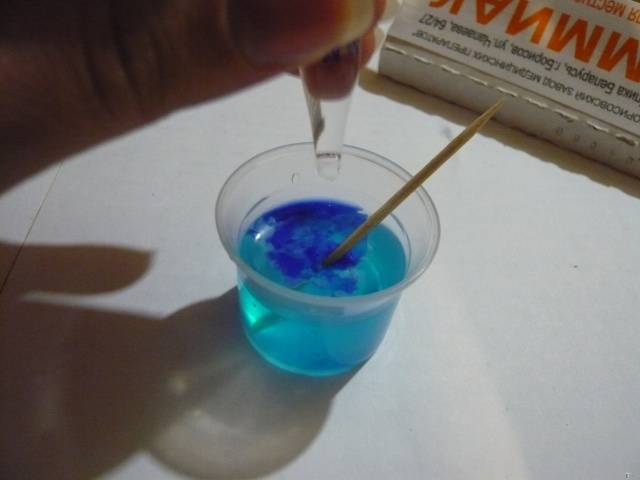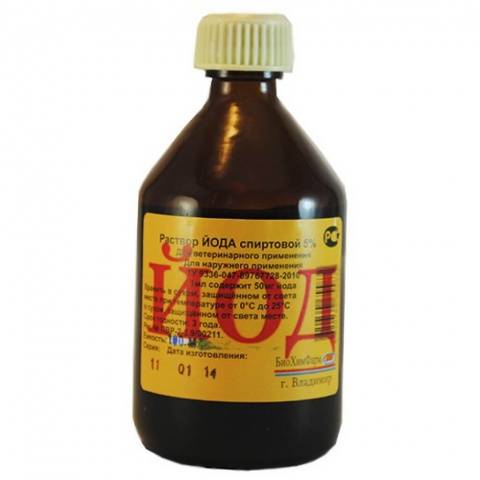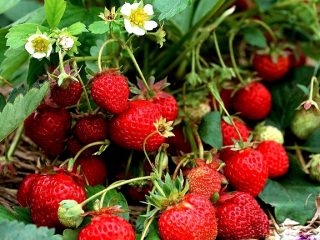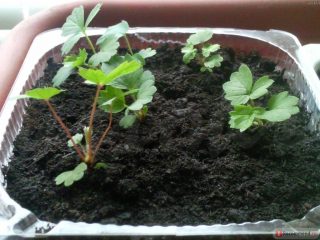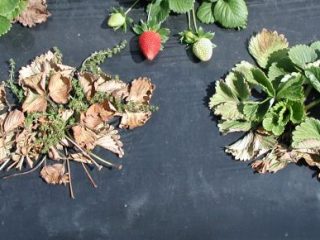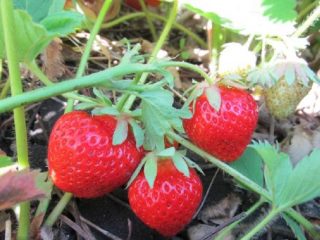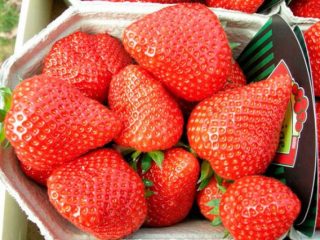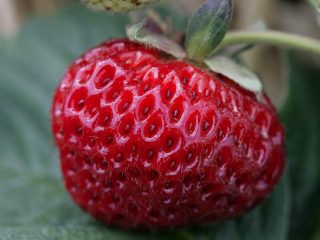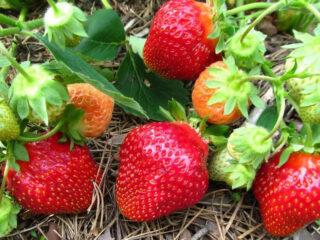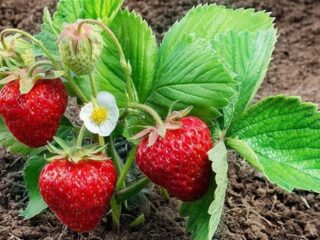Content
Strawberry disease brown spot develops when the rules of planting and caring for plants are not followed. The causative agent of the disease prefers dense plantings and high humidity. Special preparations have been developed to combat brown spot. In addition, traditional methods are used that are highly effective at low cost.
Signs of the disease
Brown spot has the following symptoms:
- the appearance of light spots on leaves and peduncles, darkening over time;
- the presence of a brown coating on the back of the leaves;
- the number of spots increases over time;
- drying of foliage.
The cause of stains is high humidity. The spread of the disease is carried out by fungal spores.
The disease can destroy half the strawberry crop. Spotting does not affect berries and stems, however, they lack nutrition due to disruption of the photosynthesis process.
Chemical methods
Copper-based products are effective in combating brown spot. The drugs must be used strictly in accordance with the instructions. The first treatment is carried out for preventive purposes of early in the spring. Some products can be used during flowering. All treatments are stopped several weeks before harvest.
Fungicides
To combat brown spot, special products containing copper have been developed. When processing strawberries, such drugs are used with caution to avoid their accumulation in the berries.
The first procedure is performed in early spring before the strawberries begin to bloom. Then the treatment is repeated after two weeks. An additional procedure is carried out in the autumn after harvest.
The following fungicides are used to combat the disease:
- Ordan – contains copper oxychloride, which has a detrimental effect on fungal spores. The components of the drug penetrate into the deep layers of plants, where they destroy lesions and restore plant tissue. 25 g of Ordan are diluted in 5 liters of water. The procedure is carried out twice with a break of 7 days.
- Coeside – a copper-based preparation that remains on the surface of the leaves and does not prevent the penetration of fungus. During the season, no more than 4 treatments of strawberries are carried out. The protective properties of Coside remain for 14 days after spraying.
- Oksikhom – a fungicide that can penetrate plant tissue and reduce fungal activity. Oxychom can be used during the growing season. For 10 liters of solution, 20 g of powder is enough. There should be at least 9 days between procedures.
- Ridomil – a product that can effectively combat spotting and other pathogens. To prepare a solution, 25 g of the drug is diluted in 10 liters of water. Ridomil is used in strawberry growing season two weeks before picking berries.No more than three treatments are allowed per season.
- Horus – a fungicide that provides protective and therapeutic effects. The drug is effective in spring and summer. Horus fights fungal diseases even at low temperatures. The product is most effective when treating young plantings. For 10 liters of water, 2 g of this fungicide is enough.
- Fitosporin – an effective drug with low toxicity. It can be used at any stage of strawberry development. Fitosporin is diluted with water in a ratio of 1:20, after which the plants are sprayed. The procedure is repeated after 10 days. With a high degree of damage, the drug concentration is taken at 1:2.
Bordeaux mixture
An effective remedy for spotting is Bordeaux mixture. To prepare it, you need copper sulfate and quicklime. The components are diluted in separate containers.
First, copper sulfate is diluted with a small amount of hot water, then cold water is added to obtain a volume of 5 liters. Lime must be diluted with 5 liters of cold water. Then the copper sulfate is carefully poured into the resulting milk of lime.
Treatment with Bordeaux mixture is carried out in early spring. The procedure is repeated after picking the berries. When working with components, you must be careful and prevent them from coming into contact with the skin and mucous membranes.
Oxide
Copper oxychloride is an effective means of combating pathogens of fungal diseases. Many drugs have been developed on its basis - “Blytox”, “Zoltozan”, “Cupritox” and others.
The substance has the appearance of green crystals and is resistant to exposure to the sun, humidity and high temperatures. The product is used to prevent brown spot in strawberries. Oxide has similar properties to Bordeaux mixture, but is easy to prepare.
No more than three treatments of strawberries are performed per season. The last procedure is carried out 20 days before harvesting the strawberries. Up to 14 days pass between treatments.
To prepare the solution, 40 g of oxychloride and 10 liters of water are required. Treatment is carried out by spraying. The substance has no side effects for plants, however, it requires the use of gloves and other protective equipment.
Copper sulfate
Copper sulfate comes in the form of blue powder or crystals. The substance is used to prepare Bordeaux mixture. Aqueous solutions are also prepared on its basis for spraying strawberries against brown spot.
When used correctly, vitriol is not dangerous. However, when interacting with it, protective equipment is used and precautions are observed.
The substance is not addictive in strawberries and has no side effects or any undesirable effects. Vitriol has a superficial effect and does not penetrate plant tissue.
Vitriol is used in early spring to prevent spotting. The solution is applied by spraying strawberry bushes. To disinfect seedlings, their roots are dipped in the preparation for 3 minutes, after which they are thoroughly washed with water.
Traditional methods
Folk remedies are safer for humans. They are prepared from available ingredients, so they do not require large expenses. The action of such drugs is aimed at disinfecting soil and strawberries. Traditional methods of control can be used repeatedly during the strawberry growing season.
Potassium permanganate solution
Treatment with potassium permanganate is a common method of combating strawberry diseases. This substance is commercially available, is not dangerous to use and gives good results against brown spot.
Manganese ensures metabolism in plant organisms, as well as the process of photosynthesis, carbon and nitrogen metabolism. Additionally, this element increases the sugar content in strawberries.
For each bush, 2 liters of solution is enough. Additionally, we fight spotting by spraying strawberries. To do this, take 1 tsp. potassium permanganate in a bucket of water.
Iodine solution
Iodine has good disinfectant properties. On its basis, root feeding and spraying of strawberries against brown spot are carried out. Iodine prevents the spread of fungus on plantings.
Feeding with iodine performs in early spring. This procedure is especially useful for young plants. The solution requires 10 liters of water and 3 drops of iodine. In autumn, plantings are watered with a solution made from 10 liters of water and 15 drops of iodine.
Treatment with iodine can be carried out every 10 days. Before flowering, plants can be additionally fed with iodine solution.
Work is carried out only in cloudy weather, since iodine can cause leaf burns when exposed to the sun.
Wood ash
The combustion products of wood and plant residues contain phosphorus, calcium and other useful components. An additional effect of using wood ash is protection against diseases and pests.
Ash is added under each strawberry bush when mulching the soil. The plants are fertilized again with ash in the fall after pruning.
1 cup of ash is added to 1 liter of water. The product is infused for a day. It is then added to a bucket of water and sprayed on the plants.
Onion or garlic infusion
Onion peel contains phytoncides that destroy the fungal environment. Watering with an infusion of onion peels is used to prevent brown spot and when its first symptoms are detected.
The product is infused for 2 days, then it is diluted with water in a ratio of 1:2. The resulting infusion is poured over the strawberries at the root or sprayed over the leaves. Several such treatments can be carried out during the season.
Instead of onion peels, garlic is used in an amount of 0.1 kg. Heads, husks, leaves or arrows of garlic are suitable for infusion. All components are crushed and filled with hot water. The product must be left for 5 days.
Garlic infusion can be sprayed on strawberries or watered at the root. The product copes with the causative agent of the disease and can be used for its prevention.
Prevention measures
The following measures will help avoid the development of the disease:
- timely care of strawberries, destruction of infected bushes;
- choosing illuminated areas for planting;
- elimination of high humidity through drip irrigation equipment;
- application of nitrogen fertilizers within normal limits;
- selection of varieties resistant to diseases;
- treatment of seedlings and soil before planting;
- ensuring air exchange in strawberries by trimming leaves;
- soil mulching;
- additional feeding with potassium and phosphorus;
- limited use of nitrogen fertilizers.
Conclusion
Brown spot affects the leaf blade of strawberries, which negatively affects the development of this plant. In the absence of necessary measures, crop losses reach 50%. Copper-based substances are used to combat the disease. Depending on the type of drug, treatment is carried out in early spring or during the growing season.
Gives positive results strawberry processing folk remedies. They are used to disinfect plants and soil cover. Proper care will help protect plantings from brown spot: watering, pruning, fertilizing. Planting material and adult plants are treated.
